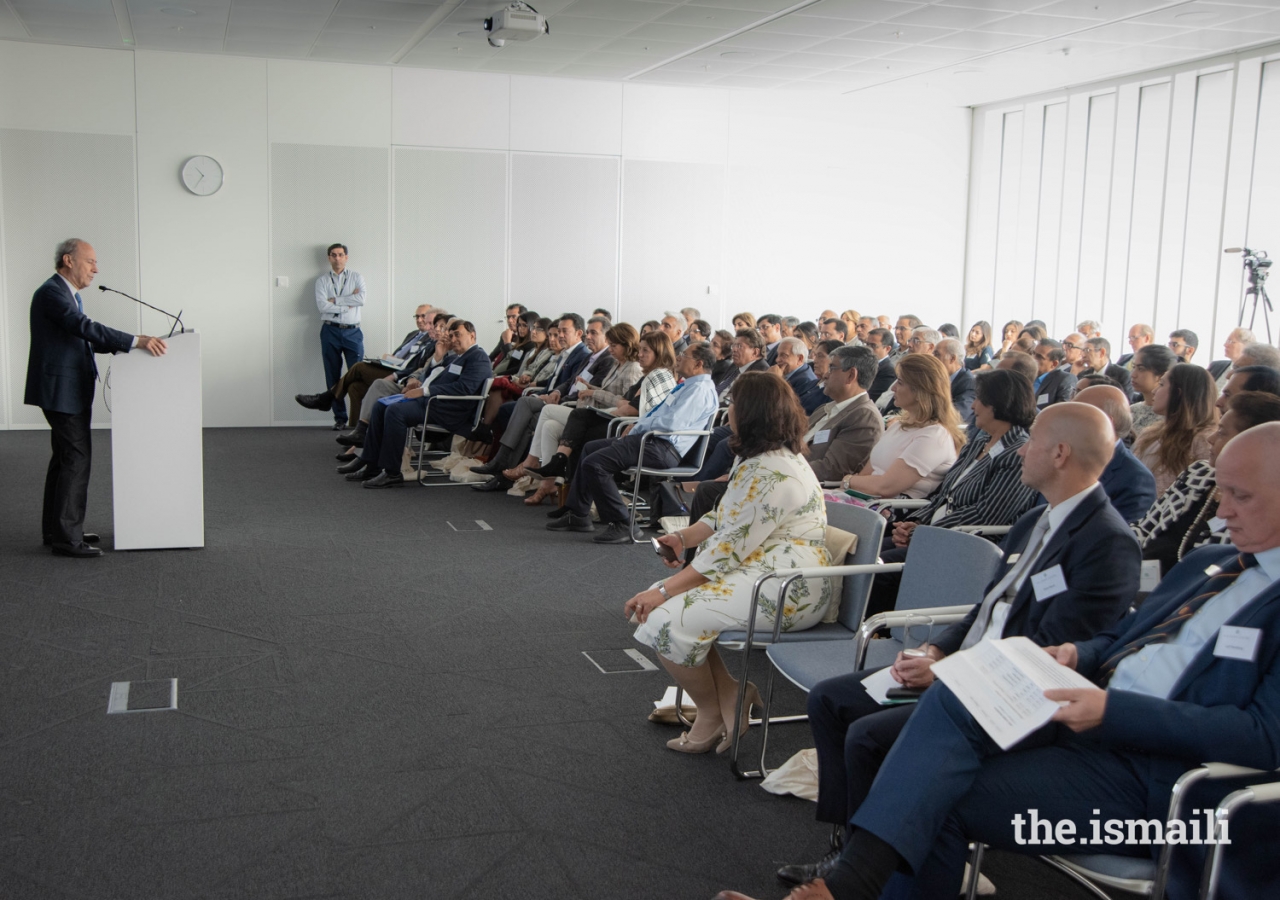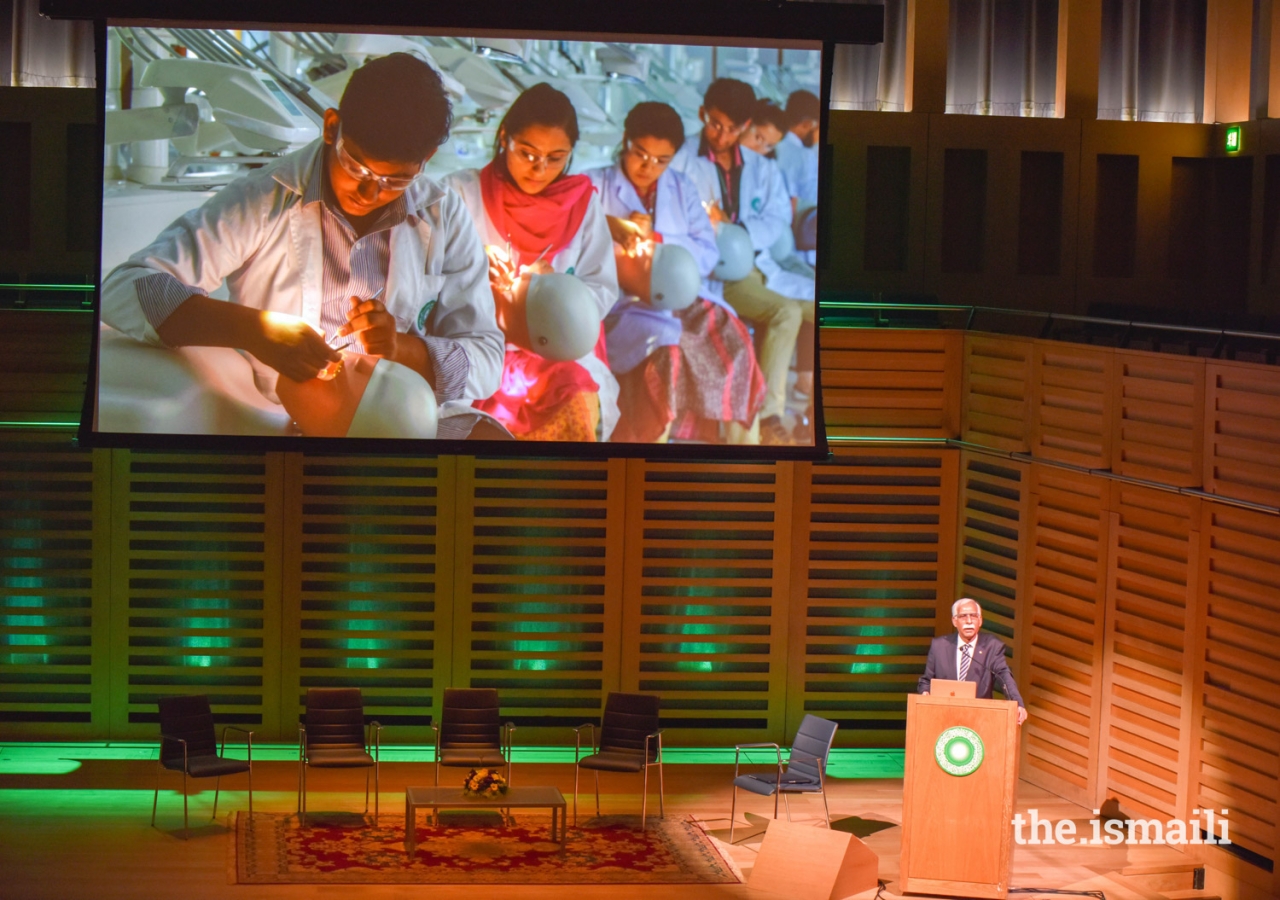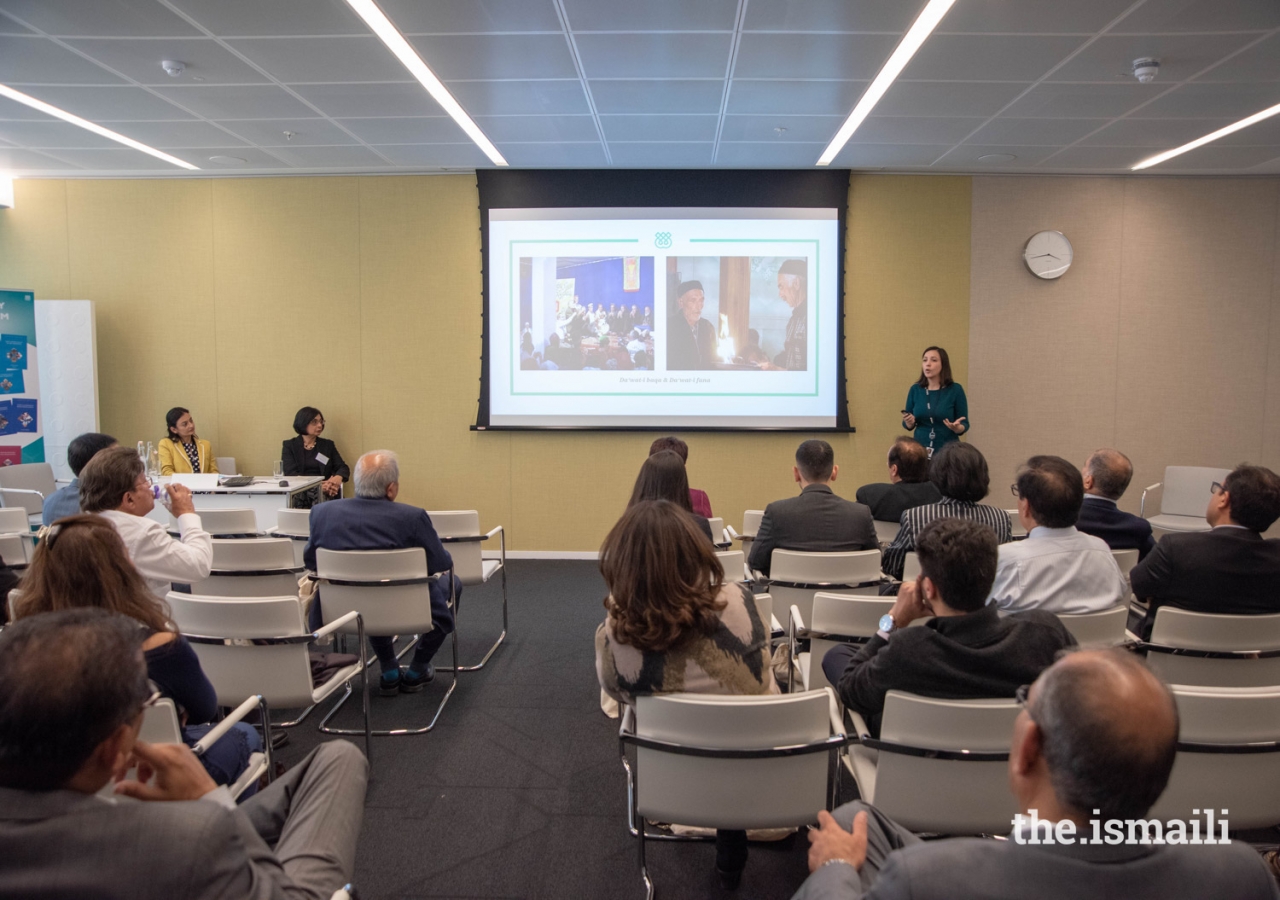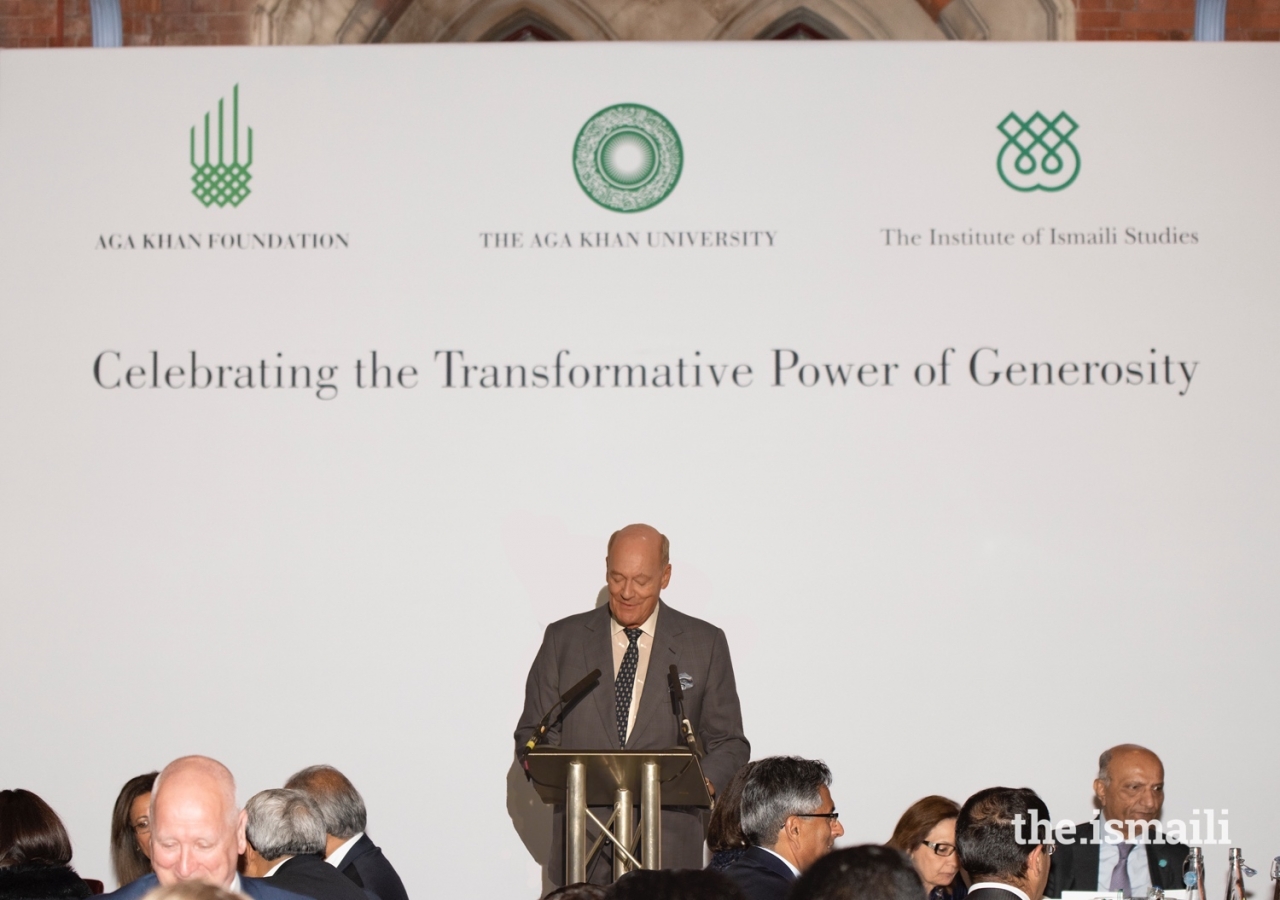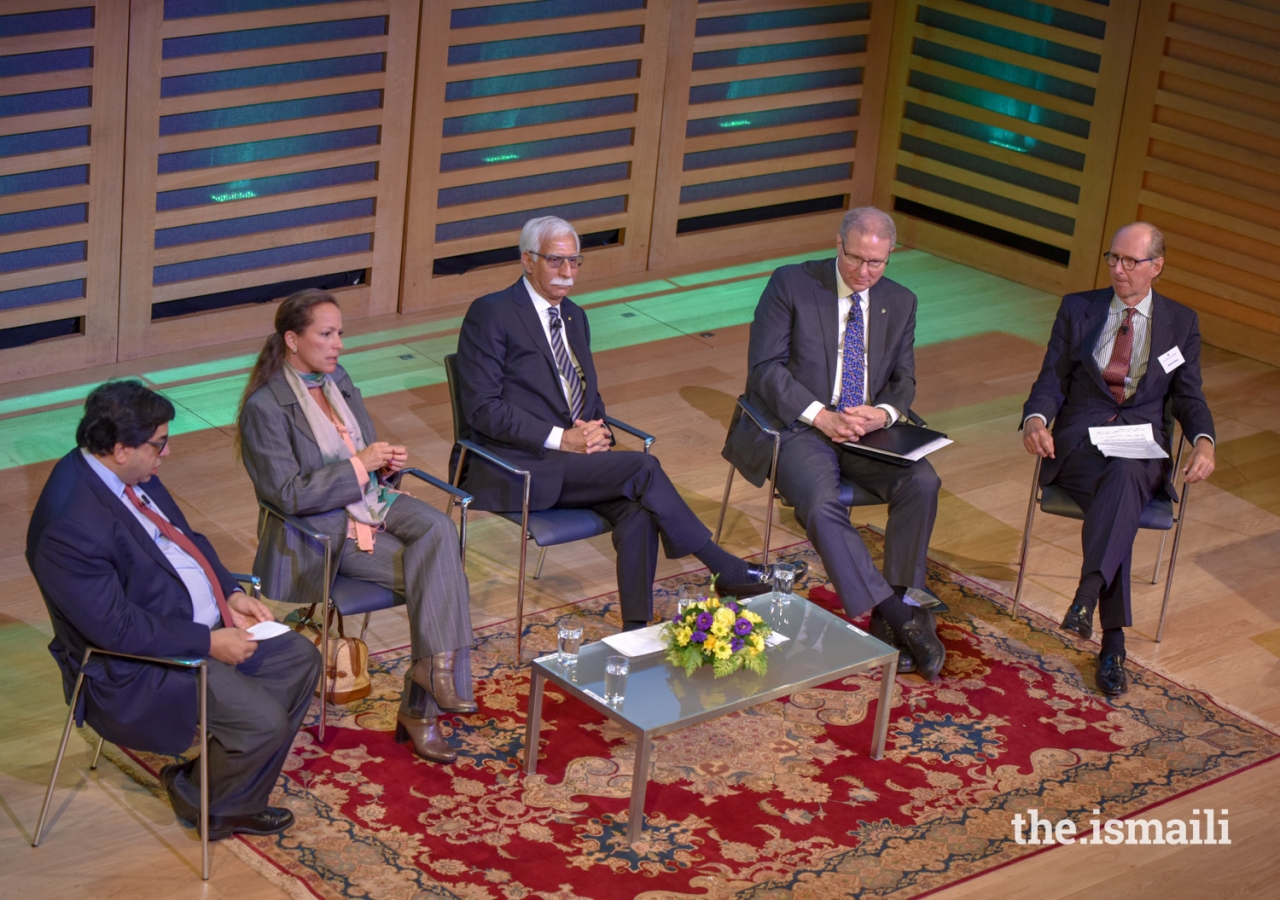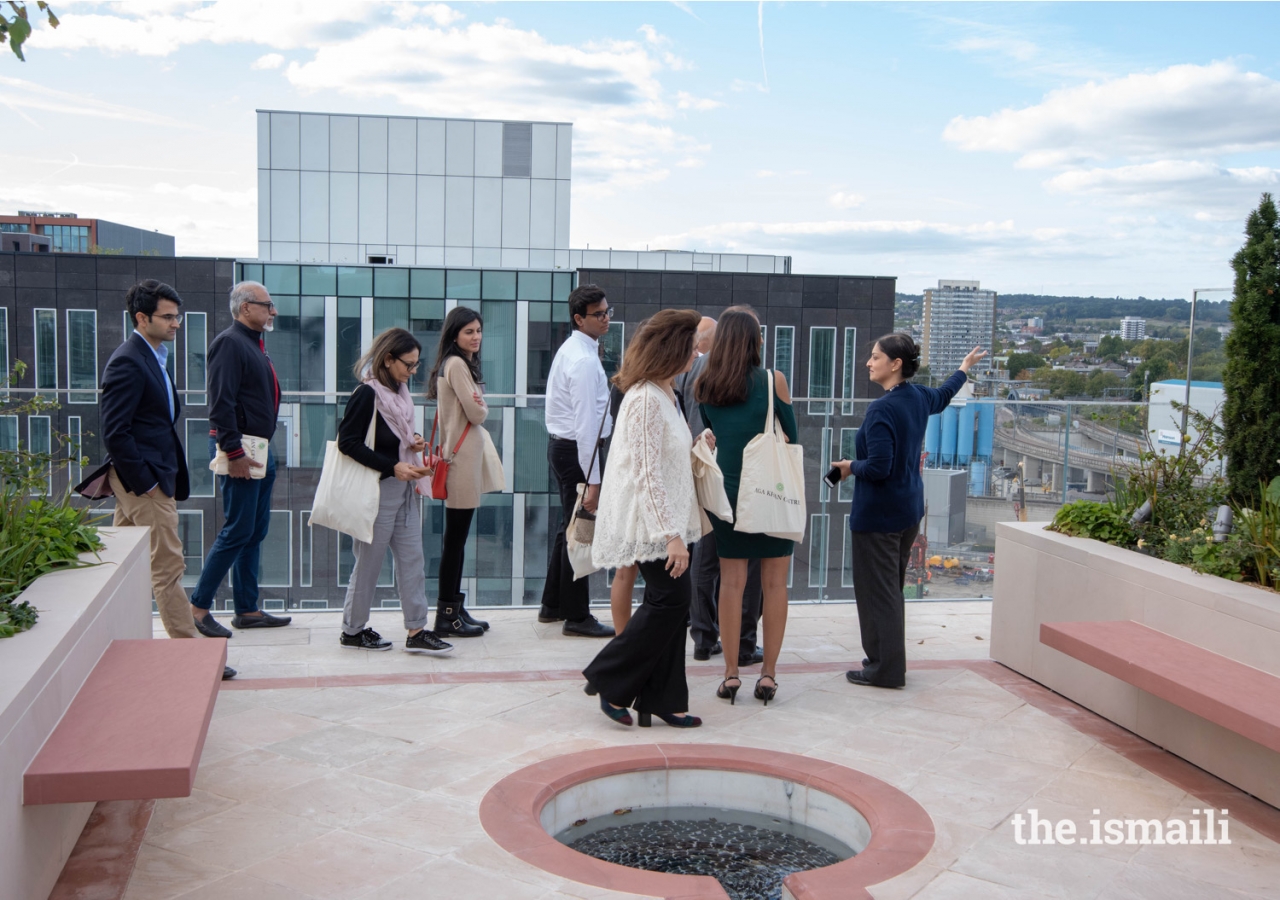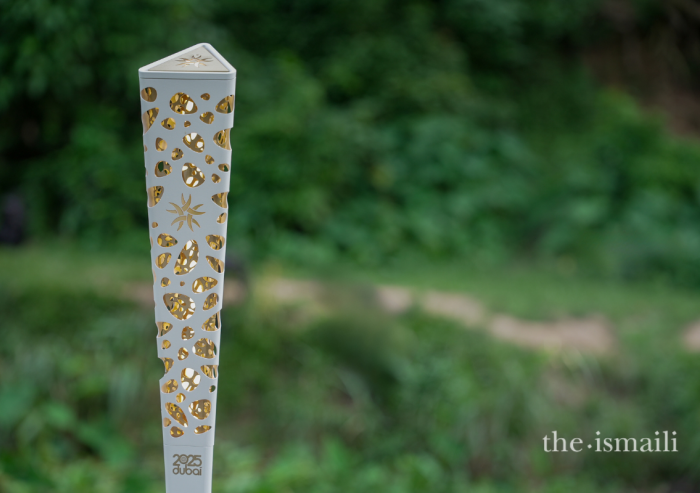Jointly organised by the three institutions, the programme provided an opportunity for a group of their most significant supporters to learn more about their work and how their contributions over the course of more than 40 years have helped to transform societies globally. The occasion was also a chance for guests to see the recently inaugurated Aga Khan Centre — a new home for the three Imamat Institutions based in the UK.
Supporters were offered a tour of the new centre in London’s King’s Cross, to explore the building’s precise architecture — designed by the Pritzker Prize winning architect Fumihiko Maki — along with its six outdoor spaces, each inspired by various regions of the Islamic world.
Overall, the event represented a platform to showcase the growth of the institutions since their inception. It was an opportune moment as the Aga Khan Foundation (AKF), The Institute of Ismaili Studies (IIS), and the Aga Khan University (AKU) were celebrating their 50th, 40th, and 35th anniversaries respectively. Senior leaders from all three organisations welcomed supporters and shared their journeys with the institutions, and the positive impact they have made on the lives of individuals and communities around the world.
Guests were given the option to select from over 15 presentation sessions, from AKU’s pioneering work in stem cell research, to the IIS’ study of manuscripts, and exploring Ismaili intellectual and artistic treasures, to AKF’s steps in overcoming barriers to provide access to girls’ education in countries such as Afghanistan.
At an evening reception, Prince Amyn expressed gratitude to guests for their support, and remarked on the history of giving in the Ismaili tradition.
“The notion of sharing one’s wealth to support educational and charitable endeavour for the benefit of others is a well-established principle of our faith” he said. “It is something which I think distinguishes us as a community and which has enabled us over the generations to create and to build institutions which have supported the quality of life not only of our Jamat but also of those amongst whom we live.”
Speaking of the series of gardens, courtyards, and terraces at the Aga Khan Centre, Prince Amyn reflected on their potential for developing increased understanding.
“These spaces are not just spaces to enjoy but they form an integral part of our educational message, illustrating the role which Muslim civilisations have played in the evolution of landscape architecture, and reflecting not only the essential importance of nature for us, but also the pluralism in the Ummah,” he said
The following day, supporters had the opportunity to take an in-depth look at AKU’s journey of growth over the last 35 years, and the forward-looking vision of the institution over the next 35 years.
Professor Stephen Toope, Vice-Chancellor of the University of Cambridge, delivered a keynote address in which he advocated for a liberal arts education, which builds strong leaders who can apply different lenses when approaching complex problems.
This idea was furthered in a panel discussion which included senior leaders of AKU, discussing the institution’s future path, and its aspirations to change the world. During the discussion, Princess Zahra spoke about the vital importance of the liberal arts, which allows students “to access the broadest possible number of topics to allow you or any student to learn to learn,” she said. Princess Zahra continued, “It’s about acquiring the skills to review something critically, to approach a problem in a creative way, and not just be focused on one solution; to be able to access multiple solutions, of your own volition”
Guests came away from the weekend with a deeper understanding of the institutions they generously support, learning how their contributions have enabled AKU, IIS, and AKF to pursue excellence, and perform cutting edge research; to preserve Ismaili and Shi’i history, and oppose misperceptions of Islam; and to break the cycle of poverty in remote and vulnerable regions of the world.

